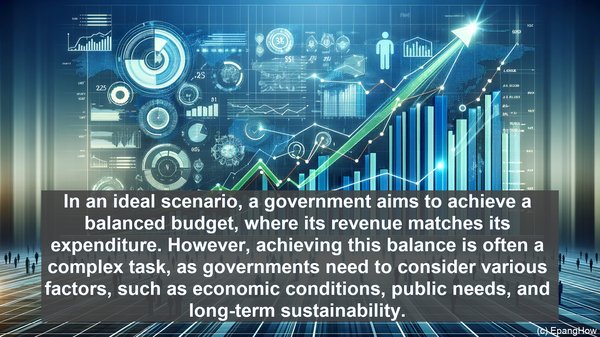Introduction: The Basics of Government Budgeting
Hello everyone! Today, we delve into the world of government finances, specifically focusing on two crucial concepts – budget surplus and budget deficit. These terms are often mentioned in discussions about the economy, but what do they really mean? Let’s find out!

Budget Surplus: A Sign of Financial Health
A budget surplus occurs when a government’s revenue exceeds its expenditure during a specific period, usually a fiscal year. In simpler terms, it means that the government is earning more than it is spending. This surplus can arise from various sources, such as increased tax revenue, reduced expenses, or even the sale of assets. A budget surplus is often seen as a positive sign, indicating that the government’s financial health is robust.
Implications of Budget Surplus
When a government has a surplus, it has several options. It can choose to save the surplus for future use, invest it in infrastructure projects, or even use it to pay off existing debt. Additionally, a budget surplus can instill confidence in the economy, as it shows that the government has the means to meet its financial obligations. This, in turn, can attract investors and lead to economic growth.
Budget Deficit: Spending More Than Earning
On the other hand, a budget deficit occurs when a government’s expenditure exceeds its revenue. In simple terms, it means that the government is spending more than it is earning. This deficit can arise due to various factors, such as increased spending on public services, economic downturns, or even unexpected events like natural disasters. A budget deficit is often viewed as a cause for concern, as it indicates that the government’s expenses are not sustainable in the long run.

Implications of Budget Deficit
When a government has a deficit, it needs to bridge the gap between its expenses and revenue. This can be done through various means, such as borrowing money, increasing taxes, or reducing spending. However, these measures are not without consequences. Borrowing money can lead to an increase in national debt, while increasing taxes or reducing spending can have implications for citizens and public services. Additionally, a budget deficit can also impact the overall economy, as it can lead to inflation or a decrease in investor confidence.
